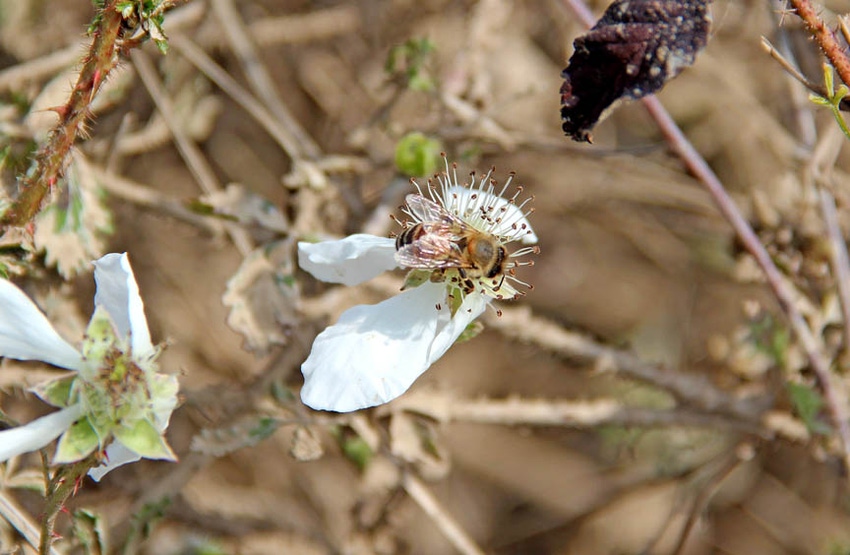April 23, 2013

Bayer CropScience has begun construction of a $2.65 million honey bee research center near the company’s headquarters in Durham, N.C. The 4,810-square-foot center, expected to be completed in July, is designed as a research facility for bee health issues and a meeting/training center for bee researchers and stakeholders.
Nationally, bee colonies are declining by an average of 30 percent per year. This year, beekeepers experienced extraordinarily high losses, some as much as 50 percent. According to Oregon State U. researcher Ramesh Sagili, six to seven factors stress bees and compromise their immune system with possible causes including parasites and the pesticides’ effects.
(For more, see: What's the real story behind neonicotinoids and honey bee deaths?)
Funding available from federal and state agencies for honey bee research is meager so the private sector's involvement has been welcomed by stakeholders. The facility will include a screened hive observation area and covered outdoor space, with 462 square feet of screened porch area and 1,410 square feet of open porch. It will house 10 hives with 40,000 to 60,000 bees per hive. A secondary location will have 15 to 30 hives.
Priority issues include the Varroa mite, a parasite widely recognized as one of the biggest challenges for beekeepers. The mite has developed resistance to a long-available control product.
The center just began its first two-year collaboration with North Carolina State U. managing small hive beetles, and is looking to work with other U.S. researchers.
More from Western Farm Press
Times are good for California agriculture
About the Author(s)
You May Also Like




